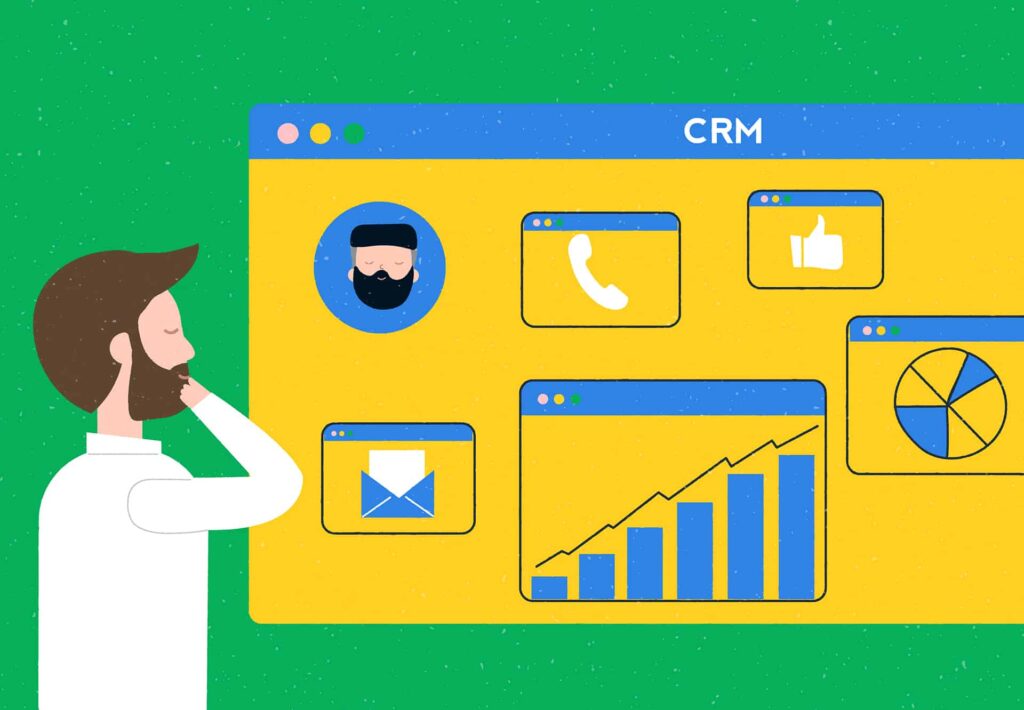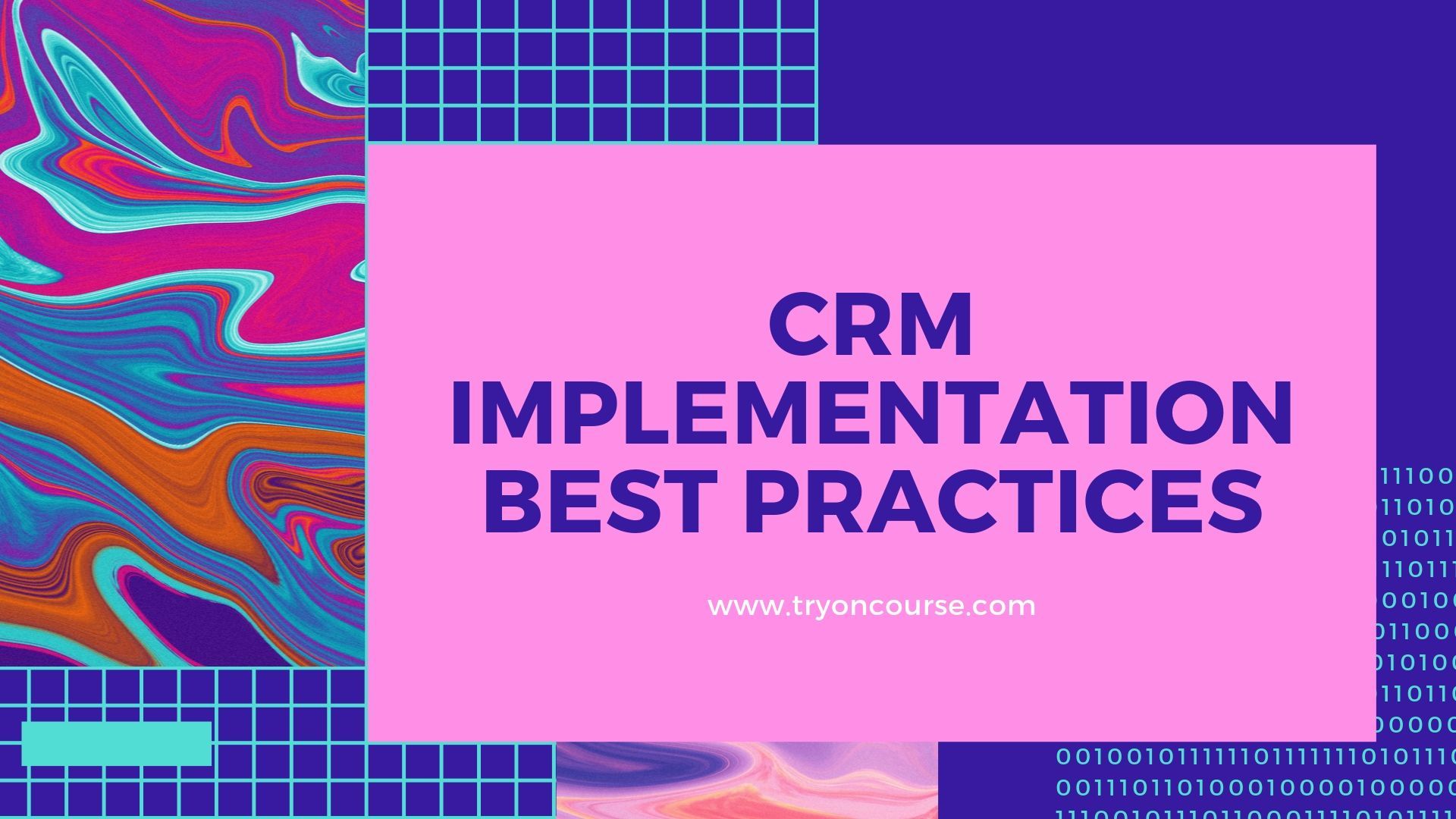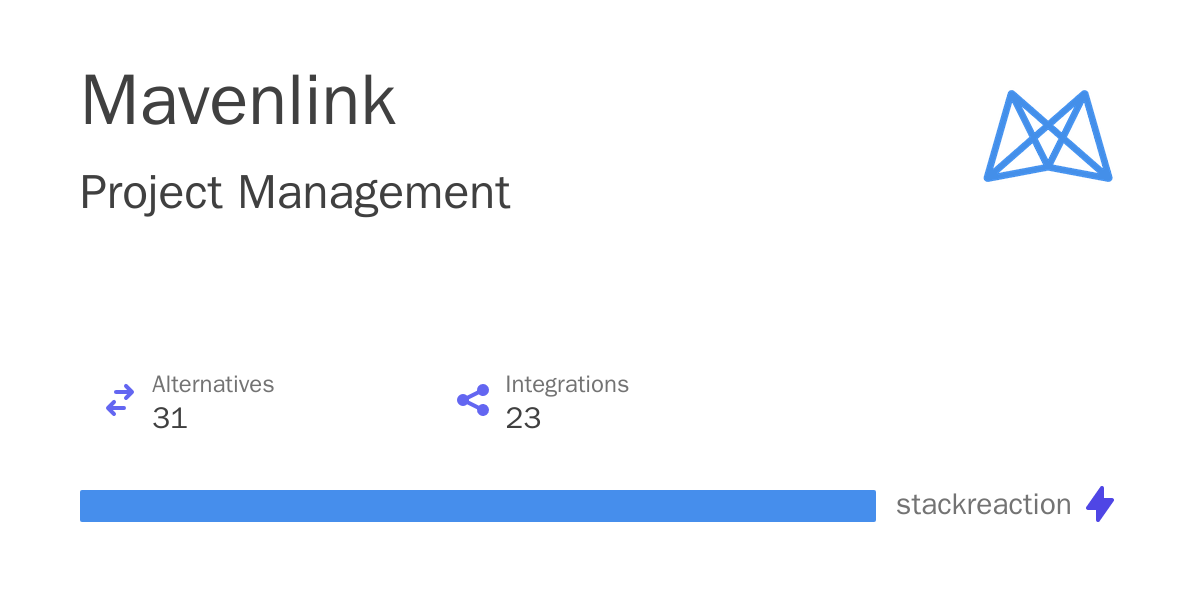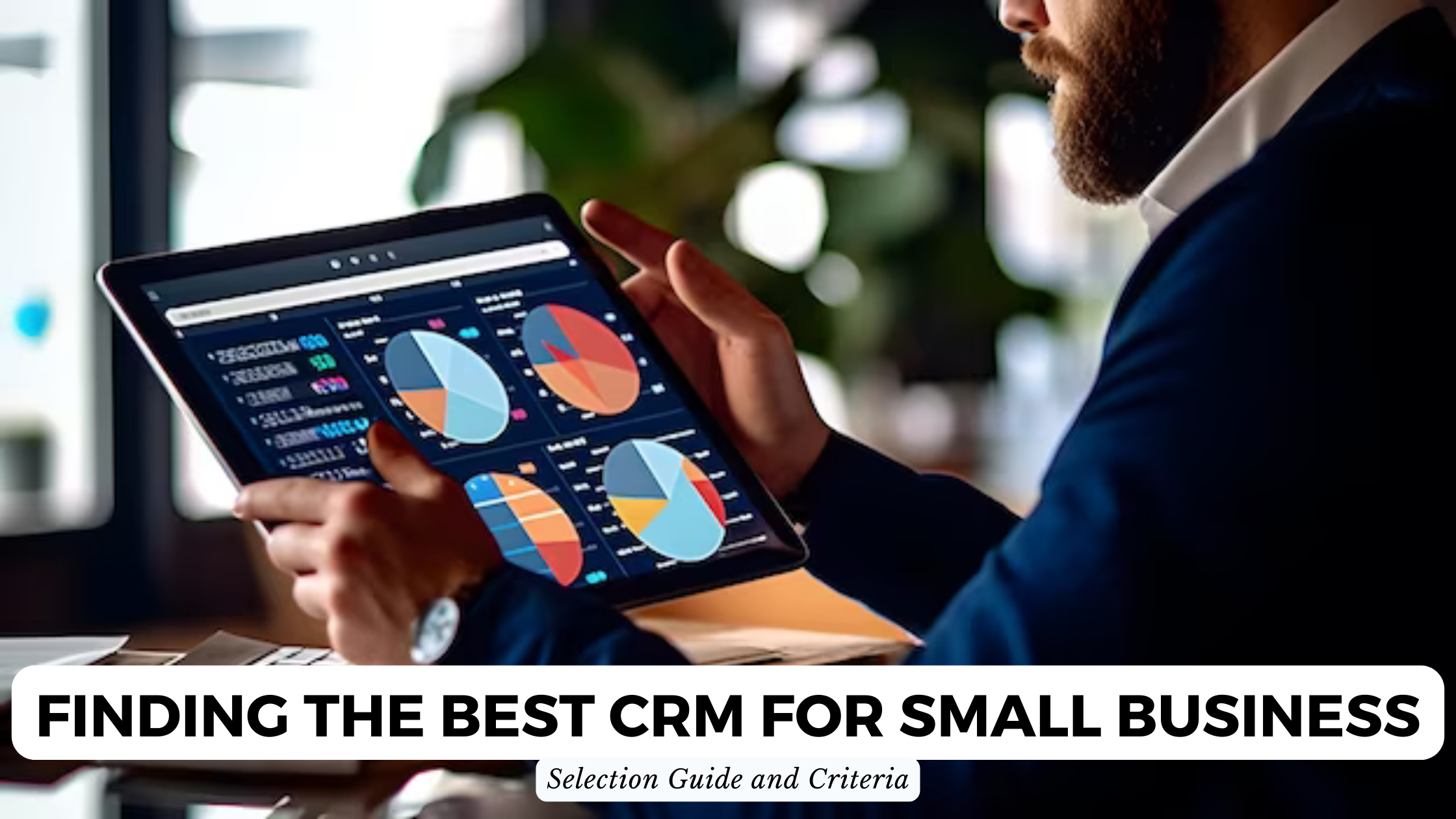
In today’s fast-paced business landscape, staying ahead requires more than just a great product or service. It demands a deep understanding of your customers and the ability to build lasting relationships. That’s where Customer Relationship Management (CRM) marketing tools come into play. They’re the secret weapon for businesses looking to not only attract new customers but also nurture existing ones, fostering loyalty and driving sustainable growth.
This comprehensive guide delves deep into the world of CRM marketing tools, exploring their functionalities, benefits, and how to choose the right ones for your specific needs. We’ll uncover the power of these tools in transforming your marketing efforts from reactive to proactive, personalized, and results-driven. Get ready to unlock the potential within your customer data and supercharge your business!
What are CRM Marketing Tools? The Foundation of Customer-Centric Marketing
At their core, CRM marketing tools are software solutions designed to manage and analyze customer interactions and data throughout the customer lifecycle. They serve as a central hub for all customer-related information, providing a 360-degree view of each customer. This holistic perspective empowers businesses to understand their customers better, anticipate their needs, and tailor their marketing efforts for maximum impact.
Unlike basic contact management systems, CRM marketing tools offer a comprehensive suite of features that go beyond simply storing contact information. They encompass a wide range of functionalities, including:
- Contact Management: Centralized storage of customer data, including contact details, demographics, and interaction history.
- Sales Automation: Streamlining sales processes, automating tasks, and managing the sales pipeline.
- Marketing Automation: Automating marketing campaigns, nurturing leads, and personalizing customer communications.
- Customer Service & Support: Managing customer inquiries, resolving issues, and providing excellent customer service.
- Analytics and Reporting: Tracking key performance indicators (KPIs), analyzing customer behavior, and generating insightful reports.
- Integration Capabilities: Connecting with other business systems, such as email marketing platforms, social media channels, and e-commerce platforms.
By integrating these functionalities into a unified platform, CRM marketing tools enable businesses to:
- Improve Customer Relationships: Build stronger connections with customers by providing personalized experiences.
- Increase Sales: Drive revenue growth by optimizing sales processes and targeting the right customers.
- Enhance Marketing ROI: Maximize the effectiveness of marketing campaigns by targeting the right audience with the right message.
- Boost Customer Loyalty: Foster customer loyalty by providing exceptional customer service and building long-term relationships.
- Gain a Competitive Advantage: Stay ahead of the competition by leveraging customer data and insights to make informed business decisions.
The Benefits of Implementing CRM Marketing Tools
The advantages of implementing CRM marketing tools are numerous and far-reaching. They extend beyond simply managing customer data; they transform the way businesses operate and interact with their customers. Here’s a closer look at the key benefits:
Enhanced Customer Understanding
CRM tools provide a 360-degree view of each customer, consolidating data from various touchpoints, such as website interactions, email communications, social media engagement, and purchase history. This comprehensive understanding allows businesses to:
- Identify Customer Needs: Understand customer needs and preferences based on their behavior and interactions.
- Segment Customers: Group customers based on demographics, behavior, and purchase history for targeted marketing.
- Personalize Experiences: Tailor marketing messages, offers, and content to individual customer preferences.
Improved Sales Performance
CRM tools streamline sales processes, automate tasks, and provide sales teams with the information they need to close deals more effectively. This leads to:
- Increased Lead Generation: Identify and qualify leads more efficiently.
- Faster Sales Cycles: Reduce the time it takes to convert leads into customers.
- Higher Conversion Rates: Improve the chances of closing deals by providing sales teams with the right information at the right time.
- Improved Sales Team Productivity: Automate repetitive tasks, freeing up sales representatives to focus on building relationships and closing deals.
Optimized Marketing Campaigns
CRM tools enable businesses to create targeted and personalized marketing campaigns that resonate with their audience. This results in:
- Increased Marketing ROI: Maximize the effectiveness of marketing campaigns by targeting the right audience with the right message.
- Improved Customer Engagement: Increase customer engagement by providing personalized and relevant content.
- Higher Conversion Rates: Improve the chances of converting leads into customers by delivering targeted marketing messages.
- Reduced Marketing Costs: Optimize marketing spend by focusing on the most effective channels and strategies.
Exceptional Customer Service
CRM tools empower customer service teams to provide prompt, efficient, and personalized support. This leads to:
- Improved Customer Satisfaction: Provide customers with a positive experience by resolving issues quickly and efficiently.
- Increased Customer Loyalty: Build customer loyalty by providing exceptional customer service.
- Reduced Customer Churn: Minimize customer churn by addressing customer concerns and building strong relationships.
- Faster Issue Resolution: Resolve customer issues quickly and efficiently by providing customer service representatives with the information they need.
Data-Driven Decision Making
CRM tools provide valuable insights into customer behavior, marketing performance, and sales trends. This data-driven approach enables businesses to:
- Make Informed Decisions: Use data to make informed decisions about marketing, sales, and customer service strategies.
- Track Key Performance Indicators (KPIs): Monitor key performance indicators to measure the effectiveness of marketing and sales efforts.
- Identify Trends: Identify trends in customer behavior and market conditions.
- Improve Business Performance: Continuously improve business performance by making data-driven decisions.
Key Features to Look for in CRM Marketing Tools
When selecting a CRM marketing tool, it’s crucial to consider the specific needs of your business and the features that will be most beneficial. Here are some essential features to look for:
Contact Management
This is the foundation of any CRM system. It should allow you to:
- Store and organize customer data: Including contact details, demographics, and interaction history.
- Segment customers: Group customers based on various criteria for targeted marketing.
- Track customer interactions: Record all interactions with customers, such as emails, phone calls, and meetings.
Sales Automation
This feature helps streamline sales processes and improve sales team productivity. Look for features like:
- Lead management: Track and manage leads throughout the sales pipeline.
- Sales pipeline management: Visualize the sales process and track deals.
- Task automation: Automate repetitive tasks, such as sending follow-up emails and scheduling appointments.
- Reporting and analytics: Track sales performance and identify areas for improvement.
Marketing Automation
This feature allows you to automate marketing campaigns and personalize customer communications. Key features include:
- Email marketing: Create and send targeted email campaigns.
- Lead nurturing: Nurture leads through the sales funnel with automated email sequences.
- Segmentation: Segment customers based on their behavior and preferences.
- Personalization: Personalize marketing messages and content.
- Campaign tracking and analytics: Track the performance of marketing campaigns.
Customer Service & Support
This feature helps you manage customer inquiries and provide excellent customer service. Look for features like:
- Help desk: Manage customer inquiries and support tickets.
- Knowledge base: Provide customers with self-service resources.
- Live chat: Offer real-time customer support.
- Case management: Track and manage customer issues.
Reporting and Analytics
This feature allows you to track key performance indicators (KPIs) and gain insights into customer behavior and marketing performance. Look for features like:
- Customizable dashboards: Create dashboards that display the metrics that are most important to your business.
- Reporting tools: Generate reports on sales, marketing, and customer service performance.
- Data visualization: Visualize data with charts and graphs.
- Trend analysis: Identify trends in customer behavior and market conditions.
Integration Capabilities
The ability to integrate with other business systems is crucial for a seamless workflow. Look for integrations with:
- Email marketing platforms: Such as Mailchimp, Constant Contact, and Campaign Monitor.
- Social media channels: Such as Facebook, Twitter, and LinkedIn.
- E-commerce platforms: Such as Shopify, WooCommerce, and Magento.
- Accounting software: Such as QuickBooks and Xero.
Top CRM Marketing Tools in the Market: A Comparative Overview
The CRM landscape is vast, with a plethora of tools available. Here’s a look at some of the leading players, highlighting their strengths and target audiences:
Salesforce
Overview: Salesforce is the industry behemoth, offering a comprehensive suite of CRM solutions for businesses of all sizes. It’s known for its robust features, extensive customization options, and vast ecosystem of integrations.
Key Strengths:
- Highly customizable
- Scalable for businesses of all sizes
- Extensive app marketplace
- Robust reporting and analytics
Target Audience: Large enterprises and businesses with complex needs.
HubSpot CRM
Overview: HubSpot CRM is a popular choice, particularly for small to medium-sized businesses. It offers a user-friendly interface, a comprehensive suite of marketing, sales, and customer service tools, and a generous free plan.
Key Strengths:
- User-friendly interface
- Comprehensive marketing, sales, and service hub
- Free plan available
- Strong integration capabilities
Target Audience: Small to medium-sized businesses, especially those focused on inbound marketing.
Zoho CRM
Overview: Zoho CRM is a versatile and affordable CRM solution that caters to a wide range of businesses. It offers a balance of features, affordability, and ease of use.
Key Strengths:
- Affordable pricing plans
- Customizable features
- Strong integration capabilities
- Good customer support
Target Audience: Small to medium-sized businesses looking for an affordable and feature-rich CRM.
Microsoft Dynamics 365
Overview: Microsoft Dynamics 365 is a comprehensive CRM and ERP (Enterprise Resource Planning) solution designed for larger businesses. It integrates seamlessly with other Microsoft products.
Key Strengths:
- Seamless integration with Microsoft products
- Comprehensive CRM and ERP functionality
- Scalable for large enterprises
- Strong data analytics capabilities
Target Audience: Large enterprises and businesses that rely heavily on the Microsoft ecosystem.
Pipedrive
Overview: Pipedrive is a sales-focused CRM designed for sales teams. It’s known for its intuitive interface, visual sales pipeline, and focus on deal management.
Key Strengths:
- Intuitive interface
- Visual sales pipeline
- Focus on deal management
- Easy to use
Target Audience: Sales teams and businesses that prioritize deal management.
Freshsales
Overview: Freshsales is a CRM solution that provides a comprehensive suite of sales and marketing tools. It’s known for its ease of use, affordability, and focus on sales automation.
Key Strengths:
- User-friendly interface
- Affordable pricing plans
- Sales automation features
- Good customer support
Target Audience: Small to medium-sized businesses looking for an affordable and easy-to-use sales CRM.
Choosing the Right CRM Marketing Tool: A Step-by-Step Guide
Selecting the right CRM marketing tool is a crucial decision that can significantly impact your business’s success. Here’s a step-by-step guide to help you choose the perfect fit:
1. Define Your Needs and Goals
Before you start evaluating CRM tools, it’s essential to clearly define your business needs and goals. Consider the following:
- What are your primary business objectives? (e.g., Increase sales, improve customer satisfaction, generate more leads)
- What are your specific marketing and sales processes? (e.g., Lead generation, lead nurturing, sales pipeline management, customer service)
- What are your current pain points? (e.g., Lack of customer data visibility, inefficient sales processes, poor customer service)
- What features are essential for your business? (e.g., Contact management, sales automation, marketing automation, customer service)
- What is your budget? (Consider the cost of the software, implementation, and ongoing maintenance)
2. Identify Potential CRM Solutions
Once you have a clear understanding of your needs and goals, start researching CRM solutions. Consider the following:
- Read online reviews: Research reviews from trusted sources to get insights into the strengths and weaknesses of different CRM tools.
- Consult with industry experts: Seek advice from CRM consultants or industry experts.
- Attend industry events: Learn about the latest CRM trends and solutions.
- Consider your business size: Some CRM tools are better suited for small businesses, while others are designed for large enterprises.
- Consider your industry: Some CRM tools are specifically designed for certain industries.
3. Evaluate and Compare CRM Tools
Once you’ve identified potential CRM solutions, it’s time to evaluate and compare them based on your specific needs and goals. Consider the following factors:
- Features: Does the tool offer the features you need?
- Ease of use: Is the tool easy to learn and use?
- Customization options: Can you customize the tool to fit your specific needs?
- Integration capabilities: Does the tool integrate with your existing business systems?
- Pricing: Is the tool affordable and within your budget?
- Customer support: Does the vendor offer good customer support?
- Scalability: Can the tool scale to meet your future needs?
- Security: Does the tool offer robust security features to protect your customer data?
4. Request Demos and Trials
Before making a final decision, request demos and trials from the CRM vendors you’re considering. This will allow you to:
- See the tool in action: Get a firsthand look at the tool’s features and functionality.
- Evaluate the user interface: Determine if the tool is easy to use and navigate.
- Test the tool with your data: Import your data and see how the tool handles it.
- Ask questions: Get answers to your specific questions from the vendor.
5. Make a Decision and Implement the Tool
After evaluating the tools and conducting demos and trials, make a final decision. Consider the following:
- Choose the tool that best meets your needs and goals.
- Develop an implementation plan: Plan how you will migrate your data, configure the tool, and train your employees.
- Get buy-in from your team: Involve your team in the selection and implementation process.
- Provide training and support: Ensure your employees are properly trained on how to use the tool.
- Monitor and evaluate the results: Track your progress and make adjustments as needed.
Best Practices for Maximizing CRM Marketing Tool Effectiveness
Implementing a CRM marketing tool is just the first step. To truly unlock its potential, you need to follow best practices and continuously optimize your efforts. Here are some key strategies:
Data Quality is Paramount
The success of your CRM relies heavily on the quality of your data. Ensure data accuracy and completeness by:
- Regularly cleaning and updating your data: Remove duplicates, correct errors, and update outdated information.
- Establishing data entry standards: Define clear guidelines for data entry to ensure consistency.
- Automating data entry where possible: Integrate your CRM with other systems to automatically capture data.
- Validating data: Implement data validation rules to prevent errors.
Personalization is Key
Leverage your customer data to personalize your marketing efforts. This includes:
- Segmenting your audience: Group customers based on their demographics, behavior, and preferences.
- Creating targeted campaigns: Tailor your marketing messages to specific customer segments.
- Personalizing email communications: Use customer data to personalize email subject lines, content, and offers.
- Personalizing website content: Display personalized content to website visitors based on their behavior.
Automate, But Don’t Overdo It
Automation can save time and improve efficiency, but it’s important to strike a balance. Use automation for tasks like:
- Sending automated email sequences: Nurture leads and keep customers engaged.
- Automating follow-up tasks: Ensure timely follow-up with leads and customers.
- Automating data entry: Integrate your CRM with other systems to automatically capture data.
- However, avoid excessive automation that can make your communications feel impersonal.
Track and Analyze Your Results
Regularly track and analyze your marketing performance to identify what’s working and what’s not. Use your CRM’s reporting and analytics features to:
- Monitor key performance indicators (KPIs): Track metrics such as lead generation, conversion rates, and customer satisfaction.
- Analyze customer behavior: Identify trends in customer behavior and preferences.
- Optimize your campaigns: Make adjustments to your campaigns based on your results.
- Generate reports: Create reports to share with your team and stakeholders.
Integrate with Other Tools
Integrate your CRM with other business systems to create a seamless workflow. This includes:
- Email marketing platforms: Sync your CRM data with your email marketing platform to send targeted email campaigns.
- Social media channels: Integrate your CRM with your social media channels to track social media interactions and manage your social media presence.
- E-commerce platforms: Integrate your CRM with your e-commerce platform to track customer purchases and personalize your e-commerce experience.
- Accounting software: Integrate your CRM with your accounting software to track sales and manage your finances.
Provide Ongoing Training and Support
Ensure your team is properly trained on how to use the CRM and provide ongoing support. This includes:
- Providing initial training: Train your team on how to use the CRM’s features and functionality.
- Offering ongoing support: Provide ongoing support to help your team use the CRM effectively.
- Creating training materials: Create training materials such as user manuals and video tutorials.
- Conducting regular training sessions: Conduct regular training sessions to keep your team up-to-date on the latest features and best practices.
The Future of CRM Marketing Tools: Trends and Innovations
The CRM landscape is constantly evolving, with new trends and innovations emerging regularly. Staying informed about these trends is crucial for businesses looking to stay ahead of the curve. Here are some key trends to watch:
Artificial Intelligence (AI) and Machine Learning (ML)
AI and ML are transforming the way businesses interact with customers. CRM tools are increasingly incorporating AI and ML capabilities to:
- Predict customer behavior: Predict customer behavior based on historical data.
- Automate tasks: Automate repetitive tasks such as data entry and lead scoring.
- Personalize customer experiences: Personalize customer experiences by providing tailored recommendations and offers.
- Improve customer service: Use AI-powered chatbots to provide instant customer support.
Mobile CRM
Mobile CRM solutions are becoming increasingly important, allowing sales and marketing teams to access customer data and manage their activities on the go. Key benefits include:
- Increased productivity: Access customer data and manage activities from anywhere.
- Improved collaboration: Collaborate with team members in real time.
- Faster response times: Respond to customer inquiries and issues quickly.
- Improved customer relationships: Build stronger customer relationships by providing instant access to customer data.
Customer Data Platforms (CDPs)
CDPs are designed to collect and unify customer data from various sources, providing a single view of the customer. They offer several advantages:
- Unified customer view: Consolidate customer data from various sources.
- Improved data accuracy: Improve data accuracy by eliminating data silos.
- Enhanced personalization: Personalize customer experiences by leveraging a unified customer view.
- Better marketing ROI: Improve marketing ROI by targeting the right customers with the right message.
Enhanced Personalization
Personalization is becoming increasingly sophisticated, with businesses using data to tailor every aspect of the customer experience. This includes:
- Personalized website content: Display personalized content to website visitors based on their behavior.
- Personalized product recommendations: Recommend products based on customer preferences and purchase history.
- Personalized email marketing: Personalize email subject lines, content, and offers.
- Personalized customer service: Provide personalized customer service by using customer data to understand their needs.
Integration of Social Media
Social media is playing an increasingly important role in the customer journey. CRM tools are integrating more deeply with social media platforms to:
- Track social media interactions: Track customer interactions on social media platforms.
- Manage social media presence: Manage your social media presence from within your CRM.
- Engage with customers on social media: Engage with customers on social media platforms.
- Gain insights from social media data: Gain insights from social media data to improve your marketing efforts.
Conclusion: Embracing CRM Marketing Tools for Sustainable Growth
CRM marketing tools are no longer a luxury; they’re a necessity for businesses striving for sustainable growth in today’s competitive market. By implementing the right CRM, understanding the key features, and following best practices, you can transform your marketing efforts, build stronger customer relationships, and achieve significant business results.
The journey doesn’t end with implementation. It’s a continuous process of learning, adapting, and optimizing. Embrace the power of data, personalization, and automation, and you’ll be well-equipped to navigate the evolving landscape of customer relationship management and thrive in the years to come. Invest in the right CRM, and invest in your future.




